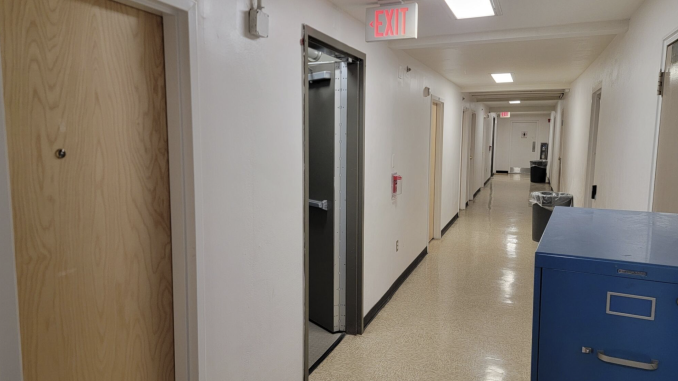
Fall semesters at Ursinus come with plenty of fanfare. The freshmen have arrived with zeal, upperclassmen are reunited with old friends, and the campus is bustling. But those returning have already noticed: the campus is more muted than in years past.
The suspicions are true: Ursinus College’s enrollment numbers are down this year. This downturn in enrollment is caused by various factors, including the cost, shifting perspective about higher education, and competition. However, there is hope to rebound.
Higher education as a whole has experienced some challenges in the past few years, the most glaring being the COVID-19 pandemic. According to the National Student Clearinghouse Research Center’s spring 2025 report, most higher education institutes enrollment stats across different institution types have been increasing, albeit slightly behind their pre-pandemic numbers. For Ursinus particularly, the number of undergraduate students has decreased. According to Dr. Katie O’Brien, Director of the Institute for Student Success, “We’d [Ursinus] like to be somewhere in the 1400s [for number of students], right? To make campus feel more vibrant, like there’s students around.” Susan Snyder of the Philadelphia Inquirer reported on September 1st that Ursinus suffered a drop in enrollment compared to neighboring institutions.
Regardless of the pandemic, the opportunity cost of college has been called into question. In an article written by Sarah Wood of U.S. News, & World Report, data shows that since 2005, the average cost of tuition at private institutions has increased by about 41%, adjusted for inflation (U.S. News, 2025). As Dr. O’Brien explains: “Either you are going to pay out of pocket and do what they can to do that, or take out loans. Those things are shifting from even when I was in college. It was just sort of a given that you were going to college and you were going to take out these exorbitant loans. The rhetoric around it was that it was an investment in yourself. But I think the pandemic shifted that. It shined a light on how expensive it is with what little money some people have. And it’s like, ‘this is gonna be a big investment. Is it worth it?’”
It should be noted that the current political climate is likely affecting higher education as well. Higher education has become a major political talking point in the last decade, with intense debates over ‘liberal arts,’ the Trump administration’s legal battles revolving around universities like Harvard and Columbia, and increasing budget cuts all adding a new dimension to the opportunity cost of college.
Ursinus is not immune to these trends in higher education. For starters, the delays to the Free Application to Federal Student Aid (FAFSA) in the past few academic years has complicated matters. Assistant Vice President of Admissions, Lauren Sciocchetti, who arrived at Ursinus in January 2024, has not experienced a normal FAFSA cycle yet. “Typically the FAFSA opens October 1st. Families can start filing and then we start sending out financial aid offer letters sometime in late November, early December here at Ursinus,” she said. “So having the FAFSA be delayed through March only gave students basically a month-and-a-half to make decisions they would have had four, five, six months for, and sometimes making decisions on college without all the facts from all the institutions they looked at in financial aid packages.”
Ursinus’s location has brought its own challenges. Out of all U.S. territories, Pennsylvania is home to the fifth-most colleges in the U.S. and the most liberal arts colleges. Even discounting nearby states, the competition for enrollment and retention is fierce. “About 70% of the students we did not retain from the cohort of Fall 2024 transferred to another institution,” Dr. O’Brien stated. “Those institutions that students are transferring to are places like West Chester, Rowan, or Penn State.”
There is some hope: APEX. According to Sciocchetti, the decision process around higher education has changed. “Am I going to find friends? Am I going to learn and grow?” she said. “Those are all still important factors in college, but they have moved down the list of importance. The top two or three things that families look at now when they’re looking at a college is ‘what is my return on investment?’” While she stressed that APEX is in its early stages and data is limited, she mentioned positive indicators thus far. “We are still trying to find the right talking points around APEX that hit the right chords with families,” Sciocchetti says. “But we are seeing with what we’re saying on the road already, we are seeing response and positive response from families and especially parents as well, that this is what they want.”
While Sciocchetti views APEX as a positive, she acknowledges potential concerns over Ursinus losing its identity. “I think APEX is a synergy between what families and students want and how the world has changed,” she explained. “Essentially, APEX is the way to make sure that families and the students here understand the value of our liberal arts education and how that interdisciplinary nature of what we do can actually create the skills and career career pathways that students are looking for.”
